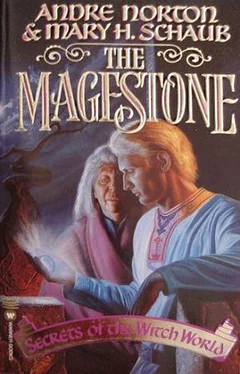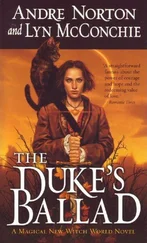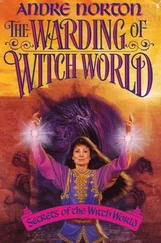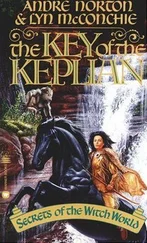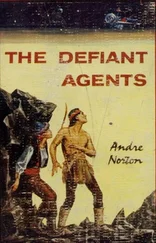Andre Norton - The Magestone
Здесь есть возможность читать онлайн «Andre Norton - The Magestone» весь текст электронной книги совершенно бесплатно (целиком полную версию без сокращений). В некоторых случаях можно слушать аудио, скачать через торрент в формате fb2 и присутствует краткое содержание. Жанр: Фэнтези, на английском языке. Описание произведения, (предисловие) а так же отзывы посетителей доступны на портале библиотеки ЛибКат.
- Название:The Magestone
- Автор:
- Жанр:
- Год:неизвестен
- ISBN:нет данных
- Рейтинг книги:4 / 5. Голосов: 1
-
Избранное:Добавить в избранное
- Отзывы:
-
Ваша оценка:
- 80
- 1
- 2
- 3
- 4
- 5
The Magestone: краткое содержание, описание и аннотация
Предлагаем к чтению аннотацию, описание, краткое содержание или предисловие (зависит от того, что написал сам автор книги «The Magestone»). Если вы не нашли необходимую информацию о книге — напишите в комментариях, мы постараемся отыскать её.
The Magestone — читать онлайн бесплатно полную книгу (весь текст) целиком
Ниже представлен текст книги, разбитый по страницам. Система сохранения места последней прочитанной страницы, позволяет с удобством читать онлайн бесплатно книгу «The Magestone», без необходимости каждый раз заново искать на чём Вы остановились. Поставьте закладку, и сможете в любой момент перейти на страницу, на которой закончили чтение.
Интервал:
Закладка:
In the course of my sorting, I chanced upon a parcel tightly wrapped in dark blue leather. The instant I touched it, I knew that my betrothal gift lay within. It had never been listed among the family treasures, and no other person in the family had ever mentioned it. I assumed that Mother must have acquired it in her trading, instead of inheriting it.
Curious to view Mother’s secret gift, I pried loose the lacings and uncovered a pendant jewel set in silver. The stone was an unusual blue-gray color, the size of a hen’s small egg, cunningly polished to sparkle and flash as the light fell upon it. When I reached to pluck it out of its soft leather nest, my fingers were jolted as if I had plunged them into snow melt. Had I possessed a voice, I am sure I would have cried out. As it was, I snatched back my hand without picking up the stone. After a breathless moment, I folded the leather around the necklace and retied the lacings.
On previous occasions, I had welcomed opportunities to handle fine brooches or belt buckles because I could somehow sense, often in later dreams, images associated with the objects’ former owners. On this day, however, I wanted no more contact with Mother’s pendant. I remember thinking that if I should hold the jewel in my hand, I would be unbearably reminded of our separation. I did not want to be any more forcefully linked to nightly visions of her than I already was in unguarded waking moments. In haste, I packed the leather roll away with other precious items to be stored in our protected treasure room, and fled outside as if pursued by demons.
I never had the opportunity to show you that jewel. You were busily traveling between Ulmsport and Vennesport, and I was frequently away from our main Vennesport storehouse. It never occurred to me to retrieve that particular locked casket until nearly twenty years later when you raised the subject of marriage. You were so deferential, so shy about asserting yourself, that I wonder you managed to utter the word “wedding.” Had we been left in peace, I would surely and gladly have shown you the pendant. Any bride would have been proud to bring such a jewel to her lord-to-be. Yet those days were fated to be far from peaceful.
You had been concerned for some time by rumors of trouble stirring across the sea, and tried to convince Mother’s brothers that our trade links were being affected. You expressed alarm when strangers from far Alizon arrived at several Dales’ ports in the guise of traders, skulking about, asking too many questions. I listened to you, and shared your disquiet. I wrote Uncle Parand several times, warning him of the danger, but in those days of willful blindness, seemingly no words could be found to rouse the Dales.
We suffered sorely from our lack of leadership—the separate Clan lords refused to recognize the threat to all, and would not cooperate or plan together until it was too late. When Alizon’s invasion broke upon us from the sea, just as you had warned it would, all that we had built in Vennesport was destroyed. When next I saw our storehouse years later, only a burned-out shell remained. Thus Alizon robbed me of both my betrothal and the gift that should have graced me as a bride. You had been killed, and the jewel—there was no way to discover what fate had befallen it.
The more I thought about the jewel, the more convinced I became that it had to be an object of Power. How else could I explain my immediate aversion to its touch? I thought at the time I was distressed because of its association with Mother, but I was even then touching items she had used regularly—her tally sticks, her hair brush, her favorite writing quills. My dreams were undisturbed by any painful intrusions linked to those objects.
I knew little then about Power, except that Dalesfolk have always been deeply uneasy discussing it, and even more averse to experiencing the use of it. Our Wise Women possess knowledge of the uses of Power, but their own exercise of it is of the personal kind, tending ills or sensing would-be outcomes by consulting their rune-boards. We prize our Wise Women’s herb lore and healing skills, but any Dalesman recoils from the thought of the raw Power wielded by the Witches of Estcarp across the sea, or the storied mages of ancient Arvon.
When Mother died, I still thought of myself as wholly of the Dales—although I had only to glance at my image reflected from burnished metal or water to observe my marked outward variance from my fellow Dalesmen, including my parents. Not for me their red-brown hair that bleached in the sun, or their green or blue-green eyes. From my youth, my hair was dark gray-brown, like rare lamantine wood, you used to say, and my eyes a very pale clear blue. My skin, too, was pale, and refused to darken during the hot summer months. My appearance, as well as my muteness, set me apart as a child.
Some of the Rishdale Dames muttered about me until Dame Gwersa made plain that I was under her special protection. Only once I heard a kitchen maid hiss at me, “Spawn of Arvon,” but I had no idea what she meant. When I wrote the evident insult for Dame Gwersa, she pursed her lips and said that some folk preferred to invent troubles when there were quite enough under foot to deal with day to day. I subsequently searched the abbey archives for lore on Arvon, but could find few references to that daunting land beyond the mountains bordering the northernmost Dales. Dame Gwersa would say only that no Dalesmen traveled there because the Arvon folk were close-knit and preferred their own company. She also conceded that there were Powers and Forces in Arvon that were best avoided by prudent men. Many years later, I attempted to trace vague rumors of rare weddings between folk from Arvon and the Dales. The suspected children of such unions were shunned in the Dales, as if they were somehow different from us. I suspect I began then to wonder whether my own strangeness could be ascribed to a blood-tie to Arvon. I had, after all, been born in a remote Dale near the borders of both Arvon and the shunned Waste.
I made a list of my peculiarities: my muteness from birth, my un-Daleslike appearance, my strange dreams (possibly similar to the odd dreams experienced by my mother), my ability to find lost objects. It occurred to me that Mother’s betrothal gift might have originated in Arvon. I could no longer ignore the inference that my real father might not have been Dwyn of the House of Ekkor.
One other piece of evidence had to be included in my list. When I was sixteen, Uncle Parand borrowed me from Mother to accompany him on coastal trading voyages. He said I should be able to learn much, while keeping his records for him. After those first short trips, he pronounced me useful and trustworthy (and also happily not subject to illness due to the motion of our trading vessels). He then invited me on the much longer voyage across the sea to the eastern lands, whose great ports I had only heard about—Verlaine, Sulcarkeep, and Estcarp’s inland river port, Es City.
While I was walking alone near Es Castle, I encountered a solitary Witch of Estcarp. I was eighteen then; Uncle Parand had warned me to defer to any lady of the Old Race garbed in the distinctive gray robes of the Witches. I drew well to one side of the path to allow her ample room to pass by. She seemed not to have noticed me at all initially, but as soon as she passed me, she stopped abruptly, turned, and made a sign in the air with her right hand. To my amazement, the very lines her moving fingers sketched flared with a blue light (I have since been told that this indicated I was not tainted by the Dark). The Witch shook her head dismissively, and walked away without speaking a word to me. She therefore failed to see the delayed secondary glowing of her sign in the air—first red, then orange, then yellow—before it faded away entirely. I did not report this incident to my uncle, nor did I write any account of it for anyone else until now, as I marshal my arguments to persuade . . . I suppose I seek to persuade myself. My stalwart Doubt—if you were here, I believe you would accept my reasoning.
Читать дальшеИнтервал:
Закладка:
Похожие книги на «The Magestone»
Представляем Вашему вниманию похожие книги на «The Magestone» списком для выбора. Мы отобрали схожую по названию и смыслу литературу в надежде предоставить читателям больше вариантов отыскать новые, интересные, ещё непрочитанные произведения.
Обсуждение, отзывы о книге «The Magestone» и просто собственные мнения читателей. Оставьте ваши комментарии, напишите, что Вы думаете о произведении, его смысле или главных героях. Укажите что конкретно понравилось, а что нет, и почему Вы так считаете.
